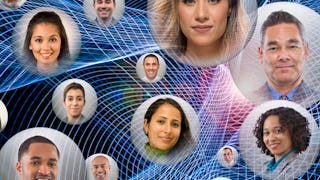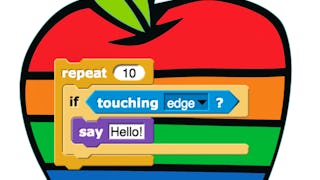CONGRATULATIONS! Not only did you accomplish to finish our intellectual tour de force, but, by now, you also already have all required skills to execute a comprehensive multi-method workflow of computational social science. We will put these skills to work in this final integrative lab, where we are bringing it all together. We scrape data from a social media site (drawing on the skills obtained in the 1st course of this specialization). We then analyze the collected data by visualizing the resulting networks (building on the skills obtained in the 3rd course). We analyze some key aspects of it in depth, using machine learning powered natural language processing (putting to work the insights obtained during the 2nd course). Finally, we use a computer simulation model to explore possible generative mechanism and scrutinize aspects that we did not find in our empirical reality, but that help us to improve this aspect of society (drawing on the skills obtained during the 4th course of this specialization). The result is the first glimpse at a new way of doing social science in a digital age: computational social science. Congratulations! Having done all of this yourself, you can consider yourself a fledgling computational social scientist!

Enjoy unlimited growth with a year of Coursera Plus for $199 (regularly $399). Save now.

Computational Social Science Capstone Project
This course is part of Computational Social Science Specialization

Instructor: Martin Hilbert
4,752 already enrolled
Included with
(40 reviews)
Skills you'll gain
Details to know

Add to your LinkedIn profile
See how employees at top companies are mastering in-demand skills

Build your subject-matter expertise
- Learn new concepts from industry experts
- Gain a foundational understanding of a subject or tool
- Develop job-relevant skills with hands-on projects
- Earn a shareable career certificate

There are 4 modules in this course
For this milestone, you will again web scrape videos from two YouTube channels. You will be assigned two channels to scrape. In contrast to the previous version of this exercise, you will NOT scrape the featured videos of the specified news channel, but the search results of the name of the news channel in combination with your name.
What's included
3 videos3 readings1 assignment1 peer review1 discussion prompt
In this milestone, you will analyze a social network with help of the software Gephi.
What's included
1 video2 readings1 peer review1 discussion prompt
In this milestone of our Integrative Lab, you will select two of the key videos identified with help of our SNA, and analyze the sentiment and emotions contained in the comment sections of the videos. We use NLP from IBM Watson for this.
What's included
3 videos1 reading1 peer review1 discussion prompt
In this milestone, you will take all the data you created in the previous milestones and use a two-step flow model and discover how ideas can diffuse into society. Through this exercise you will grow your own artificial society from the bottom-up.
What's included
6 videos1 peer review2 discussion prompts
Earn a career certificate
Add this credential to your LinkedIn profile, resume, or CV. Share it on social media and in your performance review.
Instructor

Offered by
Explore more from Data Analysis
 Status: Free Trial
Status: Free TrialUniversity of California, Davis
 Status: Free Trial
Status: Free TrialUniversity of California, Davis
 Status: Free Trial
Status: Free TrialUniversity of California, Davis
 Status: Free Trial
Status: Free TrialUniversity of California San Diego
Why people choose Coursera for their career




Learner reviews
40 reviews
- 5 stars
82.50%
- 4 stars
10%
- 3 stars
2.50%
- 2 stars
2.50%
- 1 star
2.50%
Showing 3 of 40
Reviewed on Sep 21, 2020
What a great way of integrating all we learned throughout the specialization!
Reviewed on Jan 10, 2022
Great course! Great specialization! Exceptionally good teaching and communication in the videos!
Reviewed on Dec 9, 2021
This course brings all the previous four modules into a single project where you apply what you've learnt previously in order to solidify your understanding on what Computational Social Scientists do.
Frequently asked questions
"Highly enjoyable and most importantly, giving me exceptionally important skills to fulfill my job requirements at a new position in Munich. You may be interested to know the impact of your course on salary and in my case, the knowledge and certification gained adds about another Euro 20.000 on the annual salary (taking it to about Euro 120.000 p.a.)."
"My overall impression of this was: I can't wait to use this for other stuff!!"
"I absolutely think that these tools could be used in my future jobs, or even as a personal reflection. If you scrape and analyze the comments/reactions that your business gets on Youtube, Twitter, Instagram, etc., what does their language use say about how they interact with your brand — or what your brand brings out in them?"
"Wow, this is cool and fun stuff. Even though I may not pursue anything social-science related in the near future, it is still nice to learn and get to experience all of these tools that computational social science offers and benefits in all kinds of careers and fields of study."
"I particularly enjoyed the web-scraping for some reason. It feels very advanced although its very easy. ...It seems to be a very fast and efficient way of grabbing data."
"I enjoyed playing around with machine learning! ...It was also amazing to me how quickly it was able to grasp and learn our input in seconds. It makes me wonder how much more technology will advance in these next few years... It's scary but fascinating."
"The fact that these tools are so easily usable and attainable is incredible in my mind. Not only do we have access to them like we have access to things like Facebook and Twitter, but they're FREE."
"The most interesting aspect was the fact that these tools are all free and online. In the past, only researchers at well-funded universities had access to programs like the ones we used in all of our labs. But now, even someone without much technical knowledge on complex software can use these tools."
"I am so surprised that these tools are available to anyone through a simple download, and even more so that they are very user friendly and easy to learn how to navigate. I plan on starting a clothing line company in the future and I think it will be really helpful for me to be able to analyze so much online data."
"As an Environmental Policy Analysis and Planning major, I was fascinated to learn that there is a feasible way to simulate policy implementation and impact multiple times within a short span of time."
"UCCSS has allowed me to feel more confident in my abilities with a computer and to better understand companies like Facebook or Twitter. ...these tools really are powerful but also dangerous. ...It allows powerful individuals to manipulate ideas."
"Throughout the course, the content was challenging, but when it was finally applied to the labs at the end of each module, it was really rewarding to see everything play out. It was even more rewarding when it made sense too! ... I'm really glad I took this course! It was definitely a challenge, but I'm glad I got to experience and learn about so many topics I never knew even existed."
"It was fun seeing the results of the code that I made, and I never thought that I would be doing something like this in my life. The results also showed me what the society would look like.... Social network analysis and web scraping could be the tools that I use in my future job as all the internship that I'm looking now all related to social media or digital media."
"My career aspiration is to be a digital marketing expert. These computational tools have enormous implications for the field."
"I really really loved that this class let me learn hands-on and gave me experience with tools that have real world application and combine STEM & social science. I think that a lot of these tools are useful far beyond homework activities."
"Best course I have taken. I wish more online courses structured like this would be offered."
This Specialization is the result of a collective effort with contributions from Professors from all 10 campuses of the University of California. It is coordinated by Martin Hilbert, from UC Davis, who also runs the hand-on labs and tutorials, and counts with lectures from:
1) UC Berkeley: Joshua Blumenstock, Prof. iSchool; Stuart Russell, Professor of Computer Science and Engineering.
2) UC Davis: Martin Hilbert, Prof., Dpt. of Communication & Seth Frey, Prof., Dpt. of Communication & Cynthia Gates, Director of the IRB.
3) UC Irvine: Lisa Pearl, Prof. Cognitive Sciences.
4) UC Los Angeles: PJ Lamberson, Assistant Prof. Communication Studies.
5) UC Merced: Paul Smaldino, Prof. Cognitive and Information Sciences.
6) UC Riverside: Christian Shelton, Prof. Computer Science.
7) UC San Diego: James Fowler, Prof. Global Public Health and Political Science.
8) UC San Francisco: Maria Glymour, Associate Prof. School of Medicine, Social Epidemiology & Biostatistics.
9) UC Santa Barbara: René Weber, Prof. Dpt. of Communication & Media Neuroscience Lab (with Frederic Hopp).
10) UC Santa Cruz: Marilyn Walker, Prof. Computer Science, Director, Computational Media.
To access the course materials, assignments and to earn a Certificate, you will need to purchase the Certificate experience when you enroll in a course. You can try a Free Trial instead, or apply for Financial Aid. The course may offer 'Full Course, No Certificate' instead. This option lets you see all course materials, submit required assessments, and get a final grade. This also means that you will not be able to purchase a Certificate experience.
More questions
Financial aid available,
¹ Some assignments in this course are AI-graded. For these assignments, your data will be used in accordance with Coursera's Privacy Notice.





